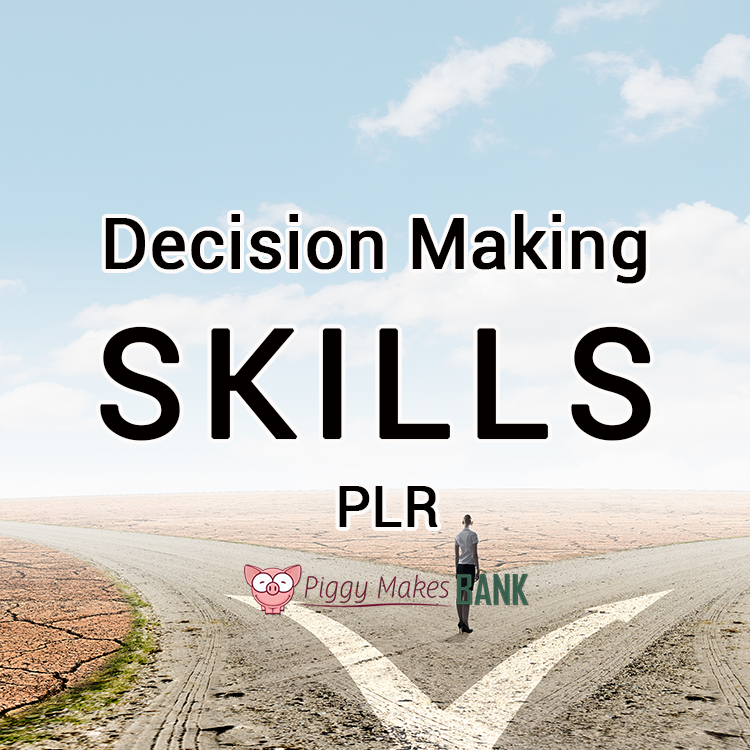Learning from Errors: Enhancing Your Decision-Making Skills Skills

Within today’s fast-paced world, making decisions can feel overwhelming. From small choices like what to eat during lunch to major life decisions like career changes or relationship commitments, our daily lives are packed with moments that require us to take a stand. However, many find themselves struggling to make the right choices, often falling into the pitfalls such as decision fatigue or paralysis by analysis. Gaining knowledge from mistakes is crucial, as each error presents important lessons that can enhance our choices skills.
Honing the art of smart decision-making involves understanding both the Psychological and practical aspects of how we choose between options. This article will examine effective techniques that can aid you enhance your decision-making skills, enabling you to navigate pressure with confidence. We will investigate the critical differences between emotional intelligence and logical reasoning, and reveal successful strategies to analyze options and make choices that lead to positive outcomes. Regardless if https://diigo.com/0zju29 ’re a leader making tough calls or an individual seeking to strengthen your daily decisions, gaining insights into these processes can empower you to make choices with clear thinking and purpose.

Methods for Enhanced Making Decisions
To boost your decision-making skills, commence by integrating a methodical approach. One effective method is to utilize decision-making structures that provide direction and insight. Frameworks such as the SWOT framework (Weaknesses, Opportunities, Threats) help assess alternatives in a methodical manner. By dividing up complex choices into smaller components, you can acquire perspectives into potential outcomes and make wise decisions.
Another valuable technique entails enhancing emotional intelligence. Understanding your feelings and the feelings of others in making decisions situations can provide insightful understanding. It allows you to manage difficult choices more efficiently by identifying biases and emotional triggers that may cloud your judgment. Developing emotional intelligence aids in building improved relationships and encouraging collaboration, especially in team decision settings.
Lastly, embracing a attitude of ongoing learning from past decisions can considerably improve your subsequent decisions. Think back on both your achievements and mistakes to recognize trends and insights learned. This reflection helps in avoiding recurrence of mistakes and encourages the establishment of improved decisions habits. Applying these methods continuously will allow you to make smarter and assertive choices in different areas of your everyday life.
The Role of Psychological Science in Decisions
Understanding the mindset behind the decision process can substantially enhance our ability to make effective choices. Our brains are designed to interpret information and make judgments based on both rational analysis and feelings. Cognitive distortions, such as belief perseverance or anchoring, can blur our decision-making, causing us to favor information that aligns with our existing views while dismissing opposing evidence. By acknowledging these tendencies, we can better handle our decisions with a clearer, less biased perspective.
Emotional intelligence also holds a crucial part in our decision-making processes. The capacity to comprehend and manage our feelings, as well as empathize with others, allows us to navigate complex circumstances with greater ease. High emotional intelligence allows us to evaluate not only the facts but also the feelings involved surrounding a decision. This balance between reason and feelings helps that we consider the impact of our decisions on ourselves and those in our circle.
Additionally, the psychological concept of choice fatigue highlights the significance of mental energy when making decisions. As we face numerous decisions throughout the course of the day, our ability to think rationally can diminish, leading to poorer choices. By organizing our decision-making processes, focusing on key choices, and permitting rest and reflection, we can overcome decision fatigue and improve our overall effectiveness in arriving at well-informed and considered choices.
Steering Decisions Hurdles
Decision-making often involves dealing with various obstacles that can hinder our capacity to make sound choices. One major challenge is the urgency many face when prompt decisions are needed. Under such situations, individuals may resort to instinctual reactions instead of reflective thought. To combat https://crabkenya25.bravejournal.net/this-choice-dilemma-ways-to-create-better-choices , it is crucial to develop methods to keep calm and attentive. Embracing consciousness and taking intentional breaks can offer an occasion to analyze the circumstance, consider options, and reduce the chance of rash decisions.
Another common hurdle is the concern of making the incorrect decision. This fear can lead to paralysis by analysis, where individuals ponder and delay making decisions. To address this, it's essential to recognize that no choice comes without challenges, and growth from failures can be a helpful part of the journey. Embracing a view that sees failures as occasions for improvement can empower people to decide more firmly, even in ambiguous situations.
Finally, the influence of collective behavior can interfere with the decision-making process. In team settings, reaching a unified decision can be difficult due to differing perspectives and characteristics. Implementing systematic choice frameworks can assist simplify the process by providing specific guidelines for evaluating options. Furthermore, creating an environment of open discussion promotes fair contributions from all members, ultimately leading to more knowledgeable and cooperative outcomes.
